Repowering Your PWC

From direct OEM replacements to remanufactured alternatives in the aftermarket, repowering your PWC can keep your craft on the water…and out of the salvage yard.
Kawasaki’s recent announcement concerning the availability of replacement engines for select Jet Ski watercraft shed light on a topic not often talked about in personal watercraft circles. That being a consumer’s existing watercraft can be repowered, whether to freshen up a damaged engine or perhaps breathe a little extra horsepower into an older model. And that power can come from a variety of sources, including the original equipment manufacturer (OEM) or the aftermarket.
Here’s a closer look at the alternatives and how they compare.
OEM Solutions
For the consumer who demands a direct replacement for what they had in their craft, the OEM route is the obvious choice. Kawasaki’s Senior Public Relations Specialist Joslyn Petty sums up the argument for buying new from pretty much any OEM. “The benefit to purchasing a Genuine Kawasaki replacement engine is that customers can have confidence in the performance and reliability they have come to expect from Kawasaki products. Purchasing Genuine Kawasaki parts also comes with the support of the Kawasaki dealer network.”
Replacement parts typically are available in either a “long” or “short” block assembly. The difference? A short block assembly includes the engine block, crankshaft, connecting rods and pistons. A long block includes cylinder heads, valve train and additional components.
In the case of Kawasaki, replacement engines are sold as a complete assembly, including bottom end, top end and fuel system. Engines can be ordered from a local dealer or found by browsing the appropriate parts diagram in the Owner Center on Kawasaki.com. Though the brand had offered replacement engines in the past, it was something Kawasaki had not offered in many years so welcome news to Jet Ski owners. While Petty suggests consumers go to their local Kawasaki dealer for pricing, the company is advertising $7,499 for a Jet Ski SX-R 160 or Ultra 160 to $7,899 for Ultra 310 models. Engines are considered replacement parts and have a warranty of 90 days from date of purchase.
Yamaha does not offer complete engine replacements, but instead goes the short-block route. Like Kawasaki, consumers purchase replacement short-block assemblies through any Yamaha WaveRunner or Boat dealer. “This assembly has a specific part number,” explains ICBM’s Bob Gonsalves, longtime Yamaha PR rep. “However, the customer will need to utilize the electronics, intake manifold, and exhaust from their current unit and swap them over with the newly acquired short block assembly.”
Sea-Doo has long offered both short and long-block assemblies, likewise through their dealer network.
“Sea-Doo offers short and/or long blocks for almost all the products we offer in an effort to shorten repair times and optimize summer fun. Our focus is to keep our customers out on the water. Therefore, Sea-Doo through our dealer network maintains a long list of genuine OEM parts that are recommended to ensure a long enjoyable summertime,” Sea-Doo’s Tim Olson tells us. “Sea-Doo’s Strategic approach is simple: We want to ensure our customers receive the high quality and performance that they have come to expect from Sea-Doo.”
Aftermarket Alternatives
For those looking to repower an older model or seeking a more cost-effective solution, the aftermarket is often the best alternative. Industry leader SBT (sbt.com) has been around since 1997 and long offered short block assemblies for a wide selection of brands, including Sea-Doo, Yamaha and Kawasaki, as well as the now departed Polaris, Tigershark, and Honda. The Clearwater, Florida-based company also offers a robust parts selection for nearly all models of PWC.
The remanufacturing process starts with a used engine or “core.” Engines are inspected, disassembled and parts brought to bare metal. All 2-stroke bearings, pistons, rods, wrist pins and gaskets are discarded and replaced. New sleeves are installed, and cylinders are bored, honed and decked to bring them back to factory specifications. New pistons and rods are installed, all new bearings, chains, and guides finish the block. Heads are decked, on 4-strokes all seats repaired and lapped, new valve guides and buckets, and the head is vacuum tested. Engines are then reassembled, and all four-strokes tested on a dyno before going to shipping. Finished engines are painted with marine-quality epoxy.
“By remanufacturing the cast pieces, SBT engines represent a 40% savings over new OEM,” states SBT President Cj Lammers, “while providing the same level of performance and a brand new OEM engine.
SBT’s inventory is impressive and extensive, with both modern and vintage PWC well represented. Engines are offered in a Premium or Standard package, with the difference being the length of the warranty. Standard engines include a 1-year No-Fault Warranty, Premium engines up that to a 2-year No-Fault Warranty and add an installation gasket kit and one quart of break-in oil for carbureted two-strokes. All engines include the cases, cylinders, trued and welded crankshafts, head, head cover and new internal parts.
The Fine Print
SBT’s no-fault means exactly what it says. “Any failure that would require replacement — sinking, oil loss, fuel issues, faulty electronics — is covered and replaced as fast as a new engine,” explains Lammers. SBT engines are sold on a “core exchange basis,” meaning customers will send their damaged or non-operative engine to SBT so that it can be used for a later remanufacture or salvaged for parts. Cores typically include the case, crankshaft, cylinder block and cylinder head. Refer to SBT’s website for specifics related to individual manufacturers and engine models.
In addition to remanufactured engines, SBT also offers their own line of brand new SBT engines to replace Sea-Doo 4-TEC and Yamaha 1.1-liter models. These include SBT’s own blocks, heads and crankshafts. The choice eliminates the hassle of shipping an old core, as well as helps those who may have a badly damaged four-stroke that may not get a full core credit.
Pricing can be found at shopsbt.com, but for a few ballpark examples, engines for older 2-stroke models can be found as low as $695 with more recent 4-strokes starting at $2495 (compared to $4000-plus for OEM engines with a limited warranty). Continues Lammers: “SBT’s own engine line is currently available for select Yamaha and Sea-Doo models starting at $3198, saving more than 20% on an new OEM with a more robust warranty to protect the consumer from anything that may happen.”
Get PersonalWatercraft.com in your Inbox!
Like PersonalWatercraft.com on Facebook
Comments
Most Popular
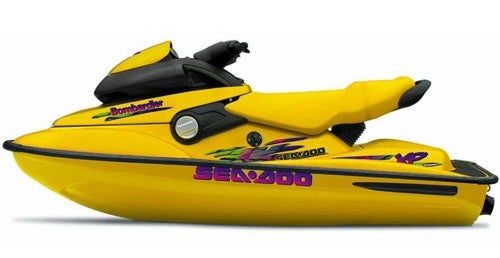
Remembering the Sea-Doo XP
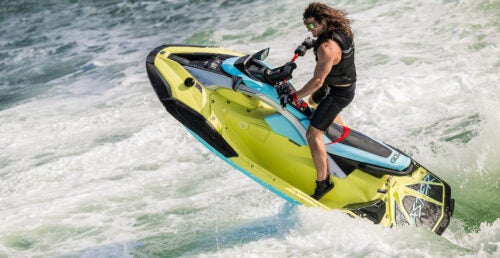
2025 Yamaha JetBlaster PRO 2-Up Review
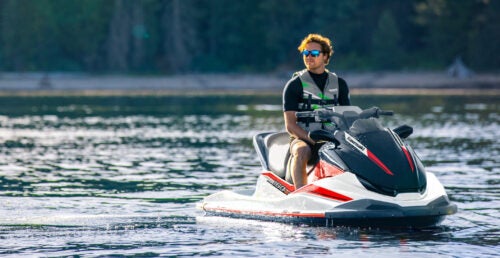
2024 Kawasaki Jet Ski STX 160X Review
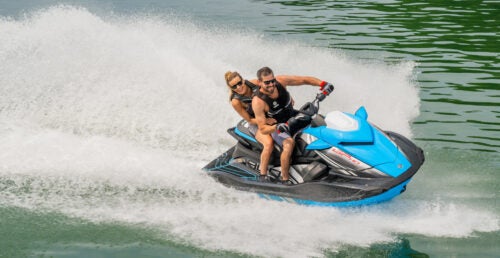
2024 Yamaha GP HO Review
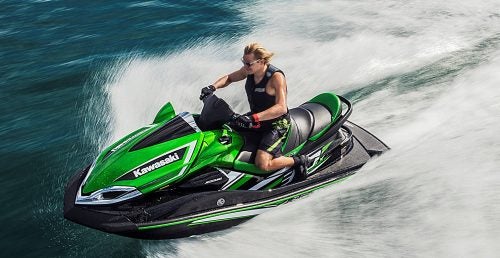
2017 Kawasaki Jet Ski Ultra 310LX Review
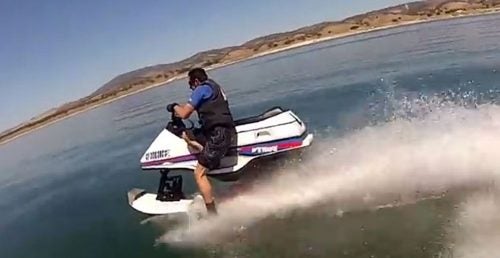
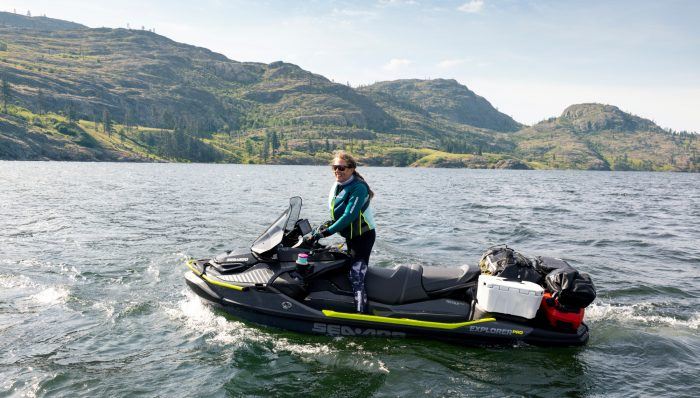
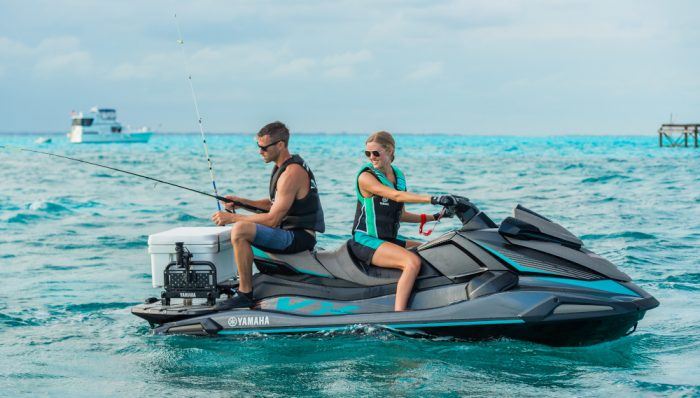
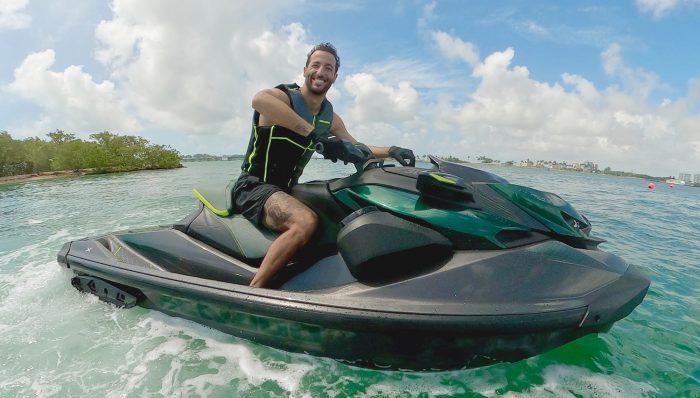



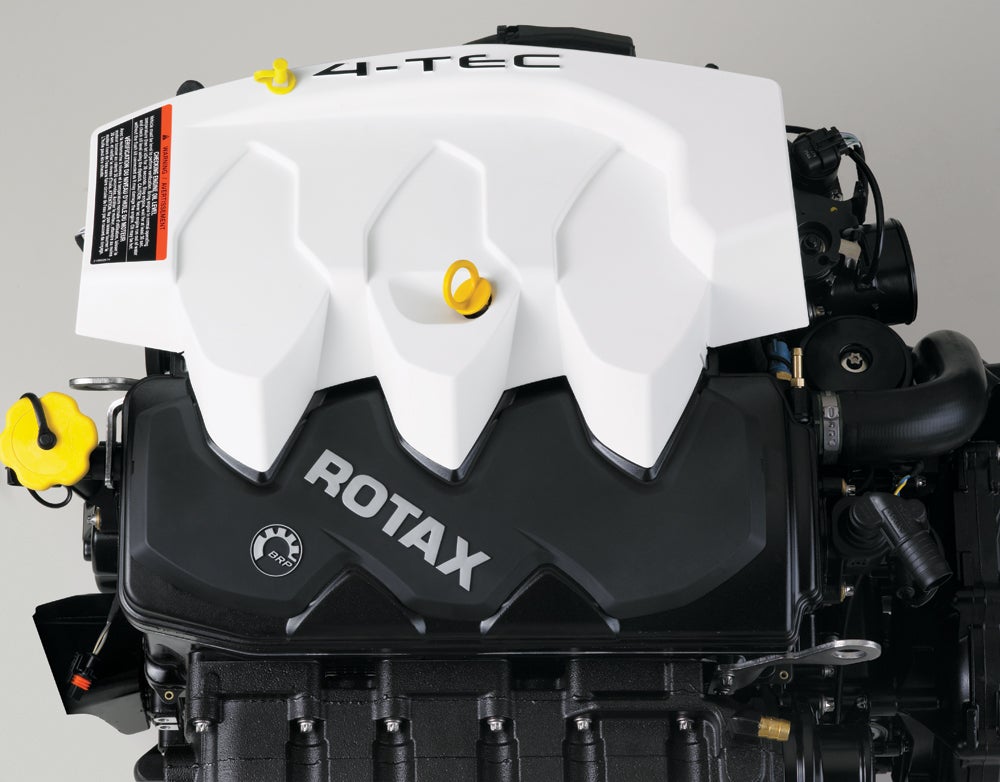


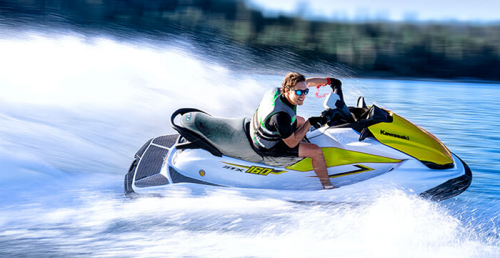
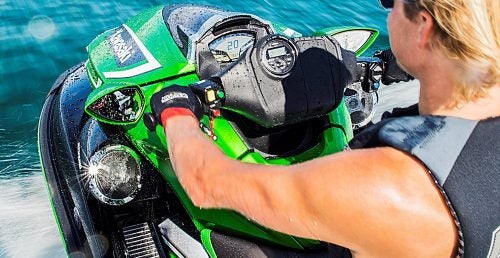
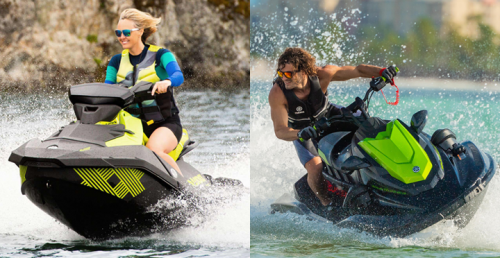


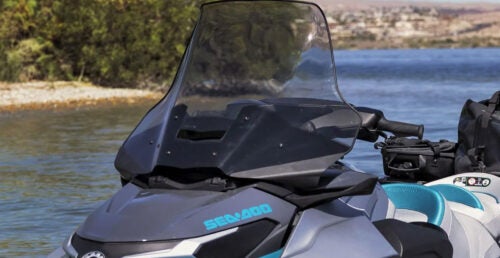
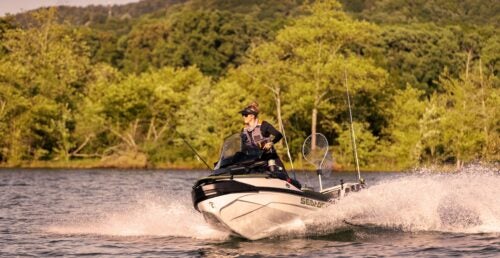


 Your Privacy Choices
Your Privacy Choices